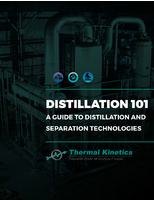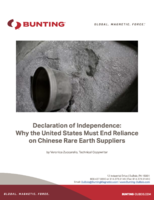P-80® Lubricants Provide a Safe and Easy Way to Improve Assembly Operations in the Automotive Industry
Rubber's non-slip quality can make an assembly process very difficult. Without an assembly aid, tight-fitting rubber components can cause production to slow down, and quality and safety standards to slip. The P-80® line is specially formulated to provide temporary lubrication that makes rubber easy to install, remove, or otherwise manipulate. P-80®'s temporary nature is a result of its chemical composition.
P-80® lubricants provide a high degree of lubricity when wet, but because they do not contain silicon or other persistent ingredients, once dry the slipping action goes away. P-80® lubricants are also free of petroleum distillates, so they will not dry, crack or otherwise harm rubber parts. P-80® lubricants are compatible with most metals, plastics and natural and synthetic elastomers.
Unlike many other lubricants, P-80® products are water-based, non-toxic, non-flammable, and easy to dispose of. P-80® is NFPA-rated at 0-0-0. Most of the products are biodegradable. Spills can be cleaned up with a cloth or sponge. Soap and water will easily remove P-80® from hands or clothing. All P-80 products undergo full health and safety testing by independent laboratories and test data is available upon request.
The automotive industry relies heavily on natural and synthetic rubber for various purposes including chassis, engine and suspension components. P-80®'s applications include mounts, seals, belts, bushings, o-rings, grommets, insulators, tires, wire harnesses, hoses, and other powertrain components and subsystem assemblies. Due to the slip resistant nature of rubber, it is relatively difficult to install, remove or manipulate. Complex and tight fitting rubber parts take up considerable time on the assembly line. Improper alignment or installation of these parts may also lead to reduction in the life-cycle of the component and result in inherent safety issues.
Traditionally, lubricants are used to provide ease of assembly in automotive manufacturing; however, the residual lubrication may result in health and safety hazards, reduced functionality or reduced aesthetic appeal. Some lubricants may also react to chemical environments, which the vehicle may undergo during day-to-day use. At times, the lubricants used may not be safe for use and may harm the environment or the operator in the long run. Improper lubrication for assembly components may also lead to injuries during assembly, creating another hindrance for worker safety.
During the design phase for rubber components in automotive assembly, testing is conducted to ensure proper fit and finish, along with analysis of the forces required to achieve a clean fit. An improper installation may lead to component damage, increased waste, damage to the production line and the requirement of excessive assembly force. Cutting rubber is also a challenge, as it is quite soft and tends to squirm; achieving perfect cuts is difficult without a lubricant or cutting medium.
The economic advantages of the P-80® line include; reduced part breakage or failure, prolonged part life, reduced worker injuries and reduced environmental impact. In addition, due to P-80®'s safety, no special air permits or handling are required. IPC also conducts extensive material compatibility tests and provides this information to customers free of charge. Finally, P-80 lubricants are made in the USA - the full P-80® product line is formulated, manufactured, and distributed by International Products Corporation (IPC) in Burlington, New Jersey. All products are available in a wide range of competitively priced sizes.
Health and safety issues, and environmental concerns are ever increasing in the automotive industry. Rubber, plastic, and articles thereof intrinsically manifest significant friction during their manipulation and assembly. The assembly of a hose onto a manifold requires strenuous exertion, particularly when the mated components are designed with tight tolerances for a permanent union.
Historically, the assembly friction is mitigated by using chemicals conveniently found throughout the manufacturing facility; these include transmission oil, motor oil, coolants, gasoline, and metalworking fluids. In the domestic automotive industry alone, IPC estimates the misapplication of these chemicals generates over ten thousand gallons of hazardous waste annually from spills, drips, and overuse. Other detrimental consequences include material incompatibility, fugitive emissions, unnecessary hazard exposure, part failure, and housekeeping hazards. This problem spans into many other industries, including aerospace, appliance, recreational equipment, marine, pump, and after-market maintenance and repair.
P-80® temporary assembly lubricants from IPC bring the best solutions to these problems. P-80 lubricants are available in six different formulas from which customers can choose different viscosities, lubricant bases, drying properties, and how the lubricant behaves after it dries. The appropriate lubricant can be chosen to suit compatibility with different surfaces and materials, and for friction reducing characteristics. P-80® temporary lubricants are the proven, safe choice for automotive assembly operations.
View the entire line of P-80 lubricants at http://www.ipcol.com. Contact me for product information or a free P-80® sample kit at mkt@ipcol.com or call 609-386-8770.
michelejc | URL: http://wp.me/p2FuMd-3T




